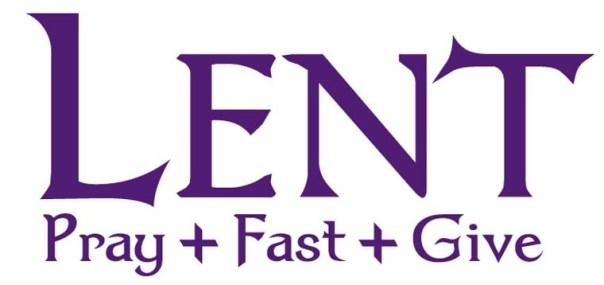What is Lent all about?
The tradition of Lent is linked to Jesus’ fasting and temptation in the desert before beginning His ministry. The tradition has evolved from the preparation of new believers to be baptised at the Easter vigil, but by the 4th century it was extended to a preparation for all.
I like preparing for things, being ready – having all I need, knowing what is required of me, so in order to prepare for Lent I find myself reflecting on Easter. The Liturgical year takes us on a journey through our faith drawing our focus to different aspects of it at different times. Easter is the pinnacle and cornerstone of our faith, we remember the death and resurrection of Jesus and the new life we find in Christ. The basic tenant of the Christian faith is that Christ’s death and resurrection we (whoever we are) are restored as God’s children. In his letter to the Ephesians, Paul describes salvation very clearly as God’s doing not ours.
But God, who is rich in mercy, out of the great love with which he loved us even when we were dead through our trespasses, made us alive together with Christ—by grace you have been saved— and raised us up with him and seated us with him in the heavenly places in Christ Jesus, so that in the ages to come he might show the immeasurable riches of his grace in kindness towards us in Christ Jesus. For by grace you have been saved through faith, and this is not your own doing; it is the gift of God— not the result of works, so that no one may boast.
Preparation?
The fact is that at Easter we celebrate and remember the gift of salvation for all that none could earn. So how on earth do you prepare for that?
So Lent is not about giving up the things we think are bad for us anyway, or about punishing ourselves for not being good enough, or about trying to earn our salvation by chalking up points. Lent is about coming face to face with who we are in Christ, loved, forgiven, children of God called to be loving and forgiving.
Lent is a time of preparation for Easter, not to earn our salvation but to realise that we cannot. In the Liturgical year Lent is the time that we strive put aside all that gets in the way of our holding firm to our being who we are in Christ. Lent is like a spring clean for the soul, firmly avowed that we won’t let it get that messy again, but knowing that we probably will.
Lent is about preparing, it is also about journeying towards Easter, learning again and again to let go of those things we grasp so tightly so that we can receive open handed and open hearted of God’s love and grace through the death and resurrection of Christ.
The three challenges of Lent
Lent is a time for us to change our lives and grow in holiness. Through the three challenges Lent gives us – fasting (giving up), almsgiving (giving to others) and prayer, we work on developing a closer relationship to God. Our 40 days should be filled with reflection, service and spending time with God in prayer.
Fasting
Fasting might mean giving up a particular food, fasting from meals, or activities – like watching TV or social media, or other things. When preparing the important questions to ask are:
- How are the things I want to give up for 40 days going to help me develop a closer relationship with God?
- Will my fast encourage me to avoid sin?
- Will abstaining from these activities lead me to become a more faith-filled person?
Giving
Giving is about money and Lent is always a good time to review how we use what we have and perhaps give money to church, charity, or someone personally. But giving is also about how we use our time and all the gifts God has given to us.
Prayer
If you don’t have a daily pattern of prayer, Lent is a great time to try it, or develop one if you do. There are a great deal of different ways to pray and resources to help. The most important things to remember are:
- Habits take time and work to develop
- God isn’t going to judge your prayer, God will be overjoyed that you prayed!
The Ministry of Reconciliation
Lent is a good time to do a Spiritual health check, Confession (or Reconciliation) can be a helpful part of that process. There are times in our lives when things we do (or don’t do) block us from growing spiritually. They stand between us and God and we can’t get around them. Confession is a way of removing the barriers that grow between us and God, that stop us from growing spiritually. Confession and absolution can be a liberating way of reconnecting with God and make us more effective and stronger in our lives of Christian service and witness.
You can read more and find a standard form for confession and absolution in the Church in Wales here. by following this link: Fr Dylan is available by appointment for anyone who would like to make use of this ministry over Lent. You are welcome to get in touch to know more or follow this link to book a time to meet for this purpose.

